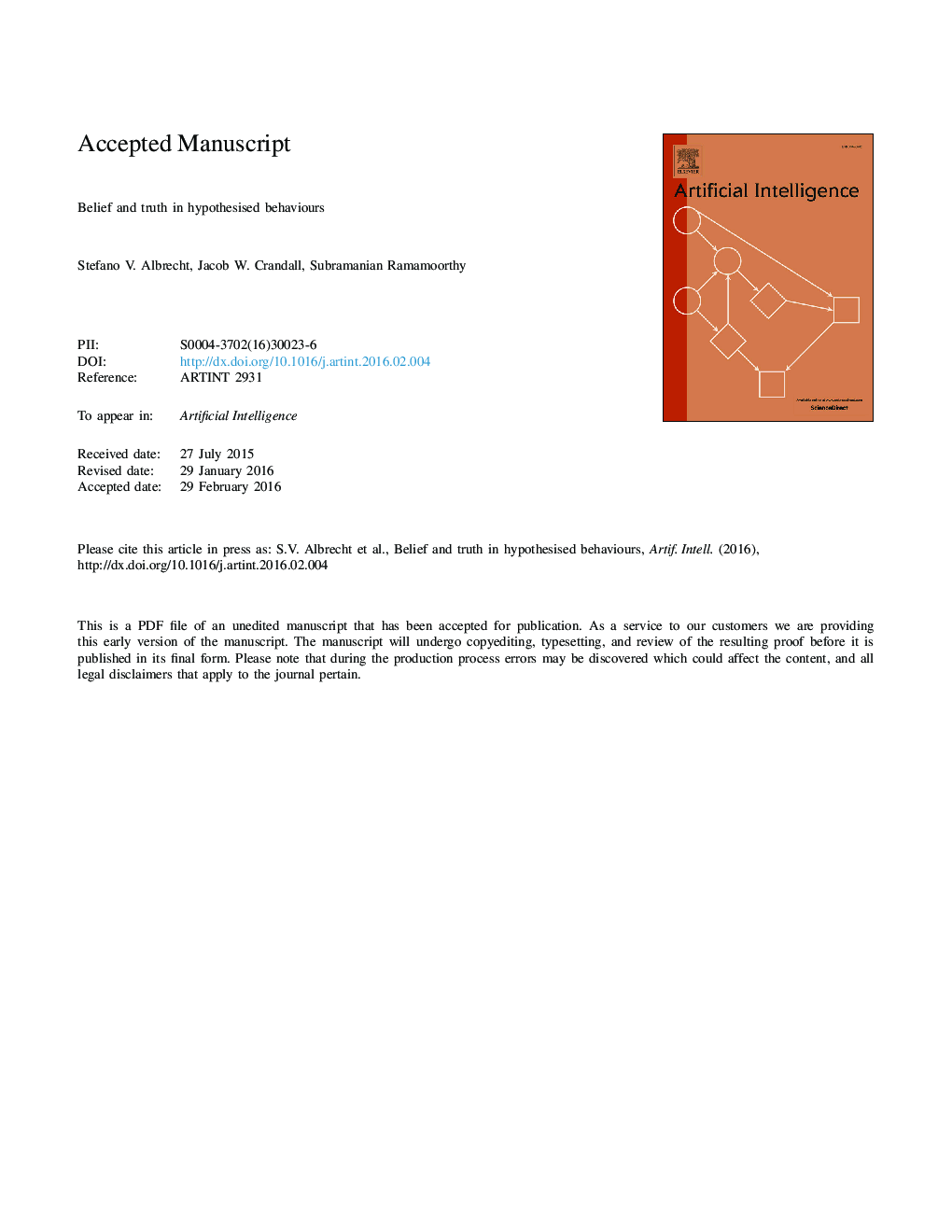| کد مقاله | کد نشریه | سال انتشار | مقاله انگلیسی | نسخه تمام متن |
|---|---|---|---|---|
| 6853134 | 658309 | 2016 | 45 صفحه PDF | دانلود رایگان |
عنوان انگلیسی مقاله ISI
Belief and truth in hypothesised behaviours
ترجمه فارسی عنوان
اعتقاد و حقیقت در رفتارهای فرضیه
دانلود مقاله + سفارش ترجمه
دانلود مقاله ISI انگلیسی
رایگان برای ایرانیان
کلمات کلیدی
عوامل مستقل، سیستم های چندگانه، نظریه بازی، روش مبتنی بر نوع،
موضوعات مرتبط
مهندسی و علوم پایه
مهندسی کامپیوتر
هوش مصنوعی
چکیده انگلیسی
There is a long history in game theory on the topic of Bayesian or “rational” learning, in which each player maintains beliefs over a set of alternative behaviours, or types, for the other players. This idea has gained increasing interest in the artificial intelligence (AI) community, where it is used as a method to control a single agent in a system composed of multiple agents with unknown behaviours. The idea is to hypothesise a set of types, each specifying a possible behaviour for the other agents, and to plan our own actions with respect to those types which we believe are most likely, given the observed actions of the agents. The game theory literature studies this idea primarily in the context of equilibrium attainment. In contrast, many AI applications have a focus on task completion and payoff maximisation. With this perspective in mind, we identify and address a spectrum of questions pertaining to belief and truth in hypothesised types. We formulate three basic ways to incorporate evidence into posterior beliefs and show when the resulting beliefs are correct, and when they may fail to be correct. Moreover, we demonstrate that prior beliefs can have a significant impact on our ability to maximise payoffs in the long-term, and that they can be computed automatically with consistent performance effects. Furthermore, we analyse the conditions under which we are able complete our task optimally, despite inaccuracies in the hypothesised types. Finally, we show how the correctness of hypothesised types can be ascertained during the interaction via an automated statistical analysis.
ناشر
Database: Elsevier - ScienceDirect (ساینس دایرکت)
Journal: Artificial Intelligence - Volume 235, June 2016, Pages 63-94
Journal: Artificial Intelligence - Volume 235, June 2016, Pages 63-94
نویسندگان
Stefano V. Albrecht, Jacob W. Crandall, Subramanian Ramamoorthy,
